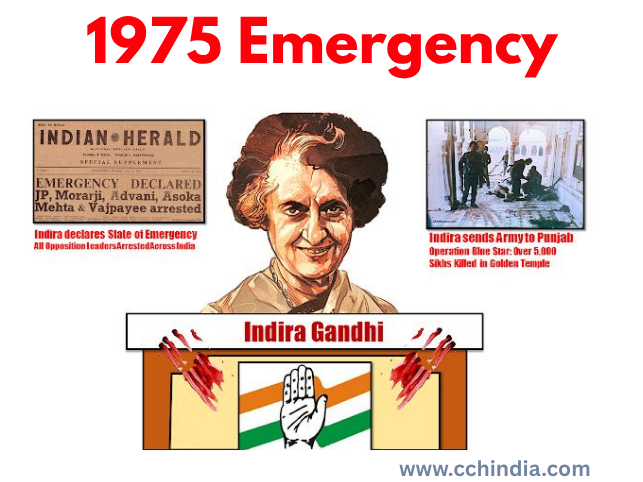Corruption-Free India for a Viksit Bharat: The Real Road to 2047
India envisions a corruption-free and developed Bharat by 2047. Discover how transparency, accountability, and citizen involvement are shaping the journey toward a Viksit Bharat.

Explore the events of June 25, 1975, when India declared a National Emergency under Indira Gandhi's leadership. Understand the causes, key developments, public response, and long-term impact on Indian democracy.
On the night of June 25, 1975, one of the most controversial chapters in Indian political history began. Then-Prime Minister Indira Gandhi declared a state of Emergency, effectively suspending civil liberties and concentrating power in the executive. This 21-month period is often remembered as a time when democracy in the world’s largest democratic nation was brought to a standstill.

Table of contents [Show]
The Emergency wasn’t declared in a vacuum. Several converging factors led to this drastic move:
Late on June 25, President Fakhruddin Ali Ahmed, on the advice of Indira Gandhi, invoked Article 352 of the Indian Constitution, proclaiming a national Emergency due to "internal disturbance."
Key actions taken immediately:
The Emergency period from June 25, 1975 to March 21, 1977, saw sweeping changes:
While many remained silent out of fear, resistance did persist:
Yet, many elite sections supported the Emergency for its perceived "discipline" and development focus.
Facing increasing domestic and international pressure, Indira Gandhi lifted the Emergency in March 1977 and called for general elections.
The results were shocking:
The Emergency left a deep scar on India’s democratic institutions:
June 25, 1975, marks not just a date, but a powerful reminder of how fragile democracy can be—even in the world’s largest democratic country. The Emergency remains a stark warning that freedoms, once taken for granted, can vanish overnight.
One of the best books to learn how actually the State of Emergency affected the lives of people is ‘A Fine balance’ by Rohinton Mistry. To understand the effects of loosing civil rights and democracy ceasing to exist, one needs to understand how it really affected the lives of common people. A time which we cannot even begin to understand. A time which should never ever repeat in the future.
India envisions a corruption-free and developed Bharat by 2047. Discover how transparency, accountability, and citizen involvement are shaping the journey toward a Viksit Bharat.
Discover how COVID-19 made India’s healthcare system stronger, smarter, and more prepared for the future—with real-life stories and personal insights.
25 जून 1975 वह दिन था जब तत्कालीन प्रधानमंत्री श्रीमती इंदिरा गांधी ने भारत पर राष्ट्रीय आपातकाल लागू किया था।
25th June 1975 was the day when the then Prime Minister Mrs. Indira Gandhi imposed a National Emergency on India.

